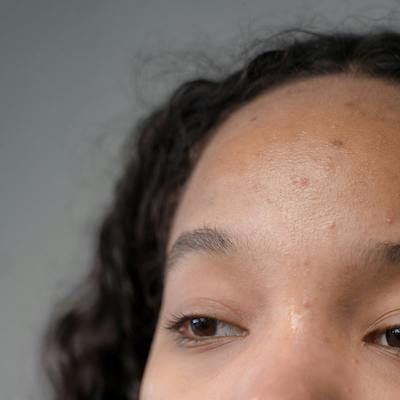News
Article
Positive Long Term Findings on Nemolizumab Observed for Atopic Dermatitis, Prurigo Nodularis
Author(s):
These new data on treatment of atopic dermatitis and prurigo nodularis were presented by Galderma at the European Academy of Dermatology & Venereology Congress.
Credit: Pexels

Nemolizumab (Nemluvio) treatment leads to continuous improvements in signs and symptoms of those with atopic dermatitis for more than 1 year, according to new 56-week findings presented at the European Academy of Dermatology & Venereology Congress in Amsterdam.1,2
These data were the result of an interim analysis of the phase 3 ARCADIA long-term extension study and released by Galderma. The company presented new data from the ARCADIA and OLYMPIA clinical trial programs assessing nemolizumab’s effectiveness among patients with atopic dermatitis and prurigo nodularis, respectively.3
“These new data will add to the growing body of evidence demonstrating the potential long-term benefit of nemolizumab in atopic dermatitis, with patients seeing improvements in skin lesions, itch, and quality of life outcomes that continue to increase over time, for more than a year,” Diamant Thaçi, MD, PhD, director and full professor for the Institute and Comprehensive Center for Inflammation Medicine at the University of Lübeck, said in a statement.1
The results for both conditions were shown in a set of presentations, highlighting the drug’s long-term results from the interim analysis of the phase 3 ARCADIA extension study in addition to an innovative biomarker analyses in adolescents and adults with moderate-to-severe atopic dermatitis. The presentations also contained new data from the OLYMPIA DURABILITY phase 3b trial evaluating long-term response of this drug in adults with prurigo nodularis.
Prior findings from both clinical trial programs had shown nemolizumab’s ability to alleviate patients’ symptoms including skin lesions, pruritus, and disturbances to sleep in atopic dermatitis as well as prurigo nodularis. The medication itself is designed to target interleukin (IL)-31 cytokine signaling, a significant driver of skin inflammation and other symptoms in such conditions.
ARCADIA Findings
During the interim analysis of the ARCADIA long-term extension study, subjects with atopic dermatitis were involved who had been included in the earlier phase 2 and 3 analyses.
The new investigation demonstrated that among those treated for 56 weeks with nemolizumab, there were significant improvements which were sustained in participants’ levels of pruritus, skin lesions, sleep quality, and quality of life.
For those treated with nemolizumab previously, it was noted by the research team that 47% were successful in achieving clear or almost clear skin. This was notable as an increase from 29% earlier in this study.
The team also reported that 73% of these individuals had an improvement of 75% in their Eczema Area and Severity Index (EASI) scores, which was noted as up from 38%. Nemolizumab’s safety profile was also confirmed in this trial, as it was consistent with earlier research.
In the biomarker-related analyses of the ARCADIA trials, it was revealed by the investigators that nemolizumab diminishes markers connected to skin lesions, pruritus, and overall inflammation, correlating with clinical improvements. Those who reported severe levels of itch were shown to have more pronounced biomarker reductions, leading to the conclusion that greater potential benefits exist for individuals most impacted by pruritus.
OLYMPIA Findings
In the OLYMPIA DURABILITY phase 3b study related to nemolizumab’s use among those with prurigo nodularis, the investigators also noted long-term benefits of the drug. The 24-week withdrawal analysis highlighted lower rates of relapse (17%) among subjects who continued nemolizumab therapy after achieving a clinical response at the 52-week mark, compared to subjects who discontinued the drug (75%).
Such findings also support the continued implementation of nemolizumab past the 52-week mark among individuals who are shown to respond well. These data also reaffirm the medication’s consistent safety profile.
Nemolizumab is approved by the US Food and Drug Administration (FDA) for the treatment of prurigo nodularis. There are anticipated regulatory decisions for nemolizumab for patients with atopic dermatitis later in the year.
Galderma’s announcement included a note that submissions are under review by authorities located within Canada, European Union, Australia,Switzerland, Singapore, and the UK.
“These late-breaking data further highlight the potential of nemolizumab as an effective, long-term therapeutic option for patients with atopic dermatitis and prurigo nodularis seeking relief from itch and skin lesions,” Baldo Scassellati Sforzolini, MD, PhD, Galderma’s Global Head of R&D, said in a statement. “We remain steadfast in our efforts to bring this potential treatment to patients who need it the most across the world.”1
References
- EADV 2024 Late Breaking News Sessions: New Galderma Data Demonstrating Nemolizumab’s Long-term Efficacy and Safety in Atopic Dermatitis and Durability in Prurigo Nodularis to Be Shared During Three Oral Presentations. Galderma. September 25, 2024. https://www.businesswire.com/news/home/20240924578710/en/EADV-2024-Late-Breaking-News-Sessions-New-Galderma-Data-Demonstrating-Nemolizumab%E2%80%99s-Long-term-Efficacy-and-Safety-in-Atopic-Dermatitis-and-Durability-in-Prurigo-Nodularis-to-Be-Shared-During-Three-Oral-Presentations.
- Thaçi D, et al. Nemolizumab long-term safety and efficacy up to 56 weeks in ARCADIA open-label extension study in adolescents and adults with moderate-to-severe atopic dermatitis. Late-breaking abstract presented at EADV 2024.
- Legat FJ, et al. Durability of response to nemolizumab in patients with moderate-to-severe prurigo nodularis: Results from a randomized placebo-controlled withdrawal Phase 3b study. Late-breaking abstract presented at EADV 2024.

Study Compares ChatGPT-4 Diagnostic Abilities to Teledermatologists




